Interview: Multi-Talented Roger Q. Mason – Ever Busy Creating Art With A Message
Center Theatre Group, in association with The Fire This Time Festival and Watts Village Theater Company, has been premiering playwright Roger Q. Mason’s THE DUAT online
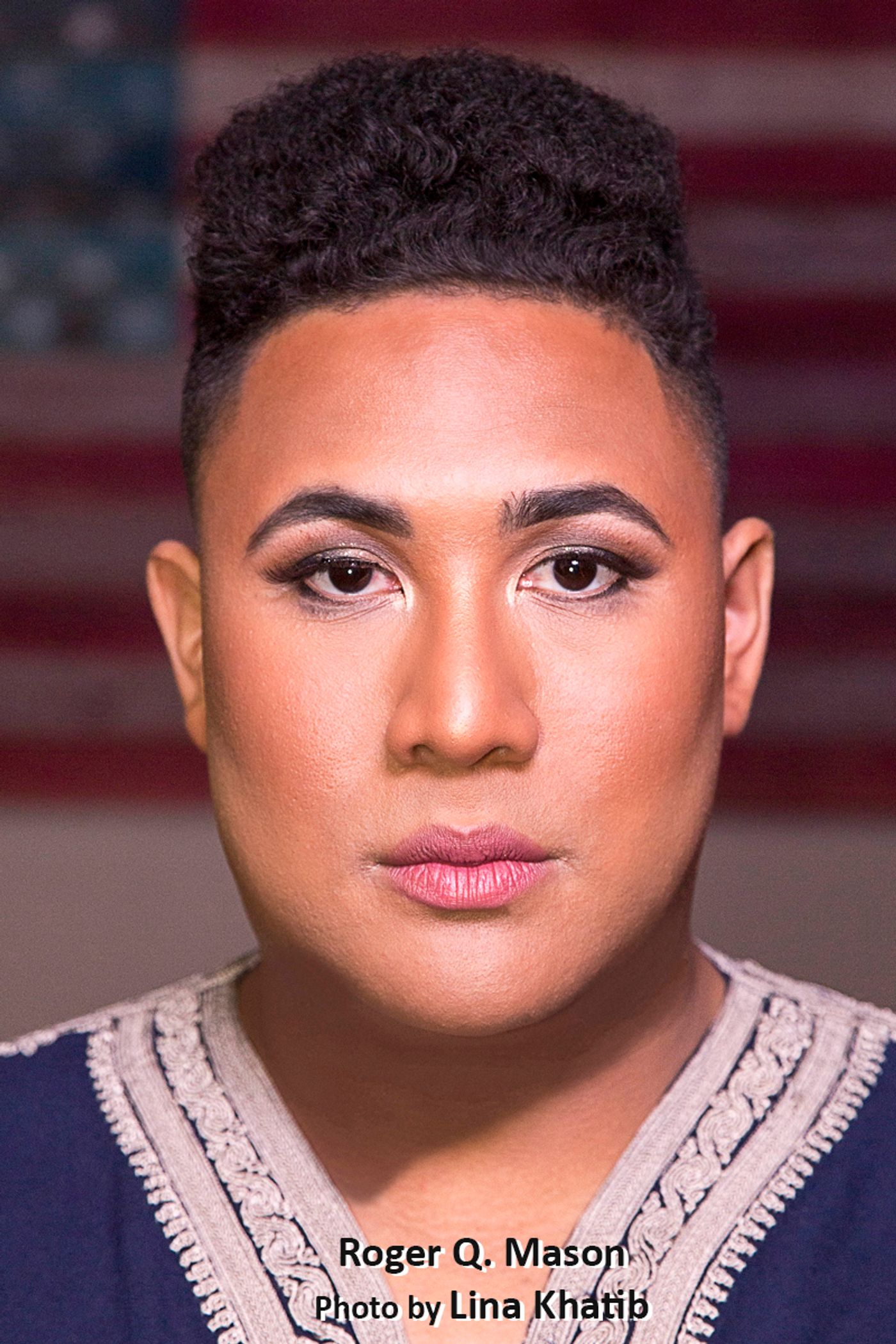
Center Theatre Group, in association with The Fire This Time Festival and Watts Village Theater Company, has been premiering playwright Roger Q. Mason's THE DUAT online as part of their series NOT A MOMENT BUT A MOVEMENT. Taibi Magar directs THE DUAT with Gregg Daniel and percussionist David Leach. Had the chance to throw out a few queries to the always busy Roger.
Thank you for taking the time for this interview, Roger!
Out of your eighteen plays, what made you choose THE DUAT for the third episode of NOT A MOMENT, BUT A MOVEMENT?
First of all, thank you, Gil, for acknowledging the journey and the work. Eighteen plays - I've never really counted them but each one represents a different sociological and aesthetic experiment - each a grasping for a new skill, a new way of telling story, and a new crop of stories to tell.
When Cezar Williams invited me to share work for consideration of NOT A MOMENT BUT A MOVEMENT, I immediately sent THE DUAT because I knew it was the piece in my body of work thus far which spoke to the message of inclusion and cultural investment that Center Theatre Group set forth through this festival. The play is about a man creating space for self-love after a life which has given him every reason to hate himself (and perhaps his community as well).
Change starts at home - in our hearts. If we want to change the world around us, we need to fortify ourselves with supreme love. That's how how social revolution begets long-lasting movements, not just reactionary moments.
Has your script changed any from its first reading at Middlebury College in 2011, to its festival production at Son of Semele Theater in 2017, to its current form?
The script was my response to a course I took with Dr. Maisha Winn, whose family had roots in the Black Power Movement. She was motivated to de-stigmatize the "radical" understanding of that time period, its personalities, and ideologies. We talked in the course about the FBI's efforts to divide and conquer Black Power's key players through informants. I wondered, "What would compel a man to turn against his own people, defect, and become a disruptor of the work?" The result was the first draft of THE DUAT.
In the 2011 production of the show, the segment in which Cindy seduces Neal in her "daddy's Caddy" (the proverbial 1963 red Cadillac convertible) was edited out of the script. With that segment omitted, the emphasis of the show was on Neal's outsider status within the Black community.
When approaching the play here, now, for Center Theatre Group, Cindy's scene kept haunting me. I had to find a way to put it back and make it work. What emerged was that Cindy, and the dependence upon white approval that she represented for Neal, was the linchpin of the play. I added two more scenes with Cindy and now she even appears as the catalyst for the climax of the show.
Cindy was the key.
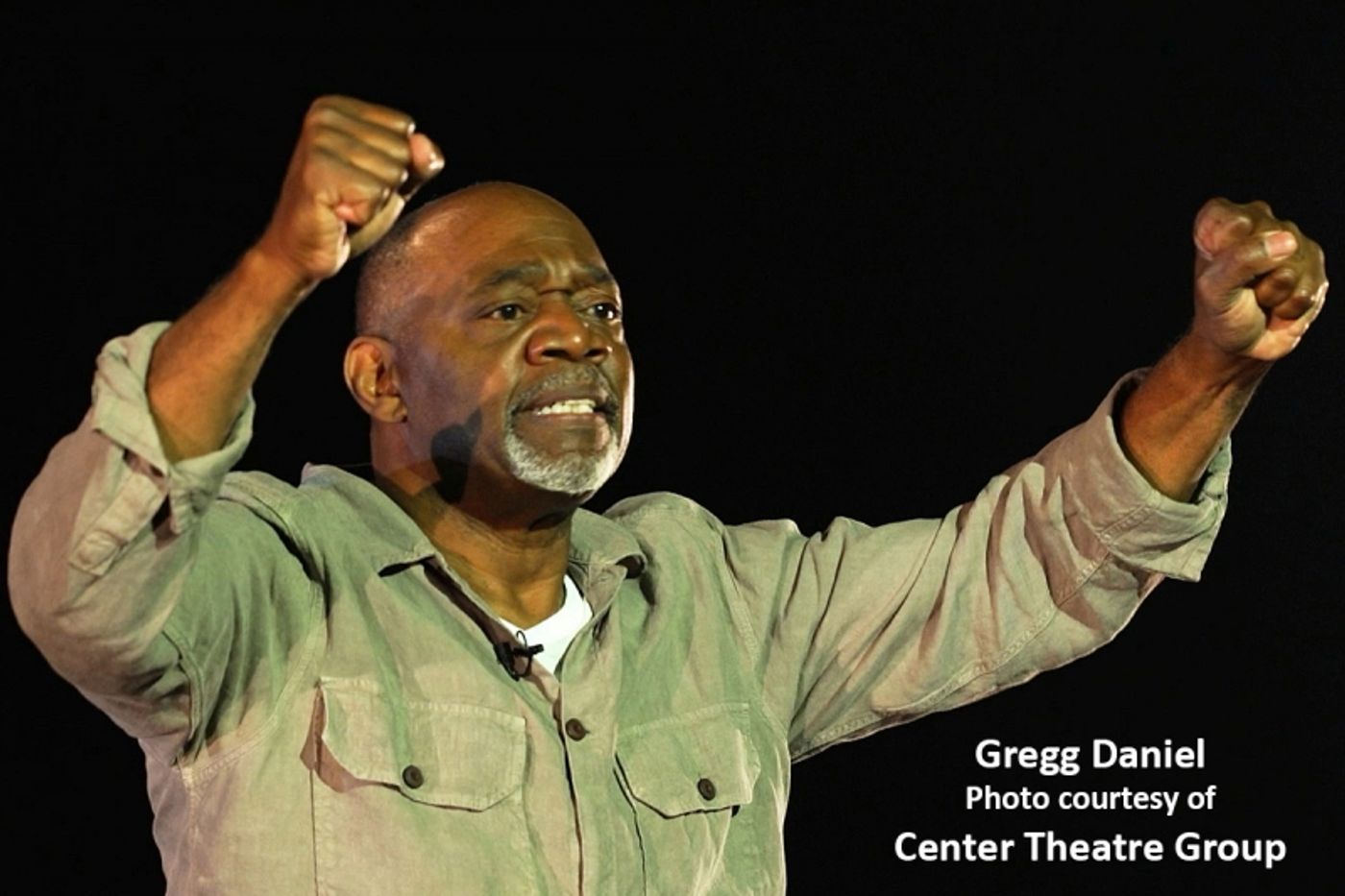 What would your three-line pitch of THE DUAT be?
What would your three-line pitch of THE DUAT be?
THE DUAT is a visceral portrait of a man grasping to love himself in a world that hates him. His spiritual reckoning in the Egyptian afterlife humbles him, preparing him to be a nobody - a damned soul of no worth to society. When he makes peace with his fate, he sheds his ego, and the gods bless him and set him free.
For the uninitiated what is the meaning of 'Duat'?
The Duat is the Egyptian afterlife. It is the realm where Osiris, the god of the underworld exists. His story is the original (or one of the original resurrection stories). I am fascinated by the Africanist origins of Western drama because they weave a tale of global cultural exchange, international idea-making, and unity that dominant social culture doesn't always center.
Oscar Brockett in his text The History of Western Drama mentions that Herodotus nodded to Egyptian theatre rituals as inspirations for ancient Greek drama. Historians of the 18th and 19th Century tried to distance Western art from its African beginnings. However, Black and White, East and West, North and South - we have always been connected, trading ideas and benefitting from the universal human hive mind.
By infusing Africanist storytelling back into Western drama I am returning Blackness to the seat at the creative table that it unequivocally deserves.
What cosmic forces brought Taibi Magar to direct THE DUAT?
My creative partner Lovell Holder introduced me to Taibi last summer as a director for The Fire This Time Festival's Alumni Spotlight program. This online showcase highlighted work I'd created during my residency with TFTT and shortly thereafter. Taibi directed an excerpt of THE DUAT featuring Wayne Brady, with whom I'd previously collaborated for the 24 HOUR PLAYS. Because we were all socially distant - Taibi, Wayne, and me - we had to create an artistic shorthand built on trust and mutual inspiration to guide our process. Taibi and I fell fast in love with each other's aesthetics, taste, and theatre-making processes. So, when the time came for the current presentation of THE DUAT, I leapt at the chance to continue the artistic dialogue Taibi and I commenced last year. And the experience was theatrical alchemy at its finest.
Have you worked with THE DUAT cast or creatives before?
In addition to Taibi, I've worked with Brandon Baruch and David Gonzalez before. Brandon lit a solo show called BREATHE by Philicia Saunders that I directed this past December. His magnetic, cross-genre visions of lighting design excite me, particularly in this hybridized live/streamed world in which we are making work now. I affectionately call David Gonzalez my Music Director. He has created sound and original music for my short films, streamed theatre, podcast, the list goes on. I don't go anywhere without David because he understands my sonic sensibilities intimately and completely. And, of course, I've been in collaborative communion with TFTT's Artistic Director Cezar Williams for many years now, and I am ever grateful to him for proffering me and this project for the consideration of NOT A MOMENT, BUT A MOVEMENT.
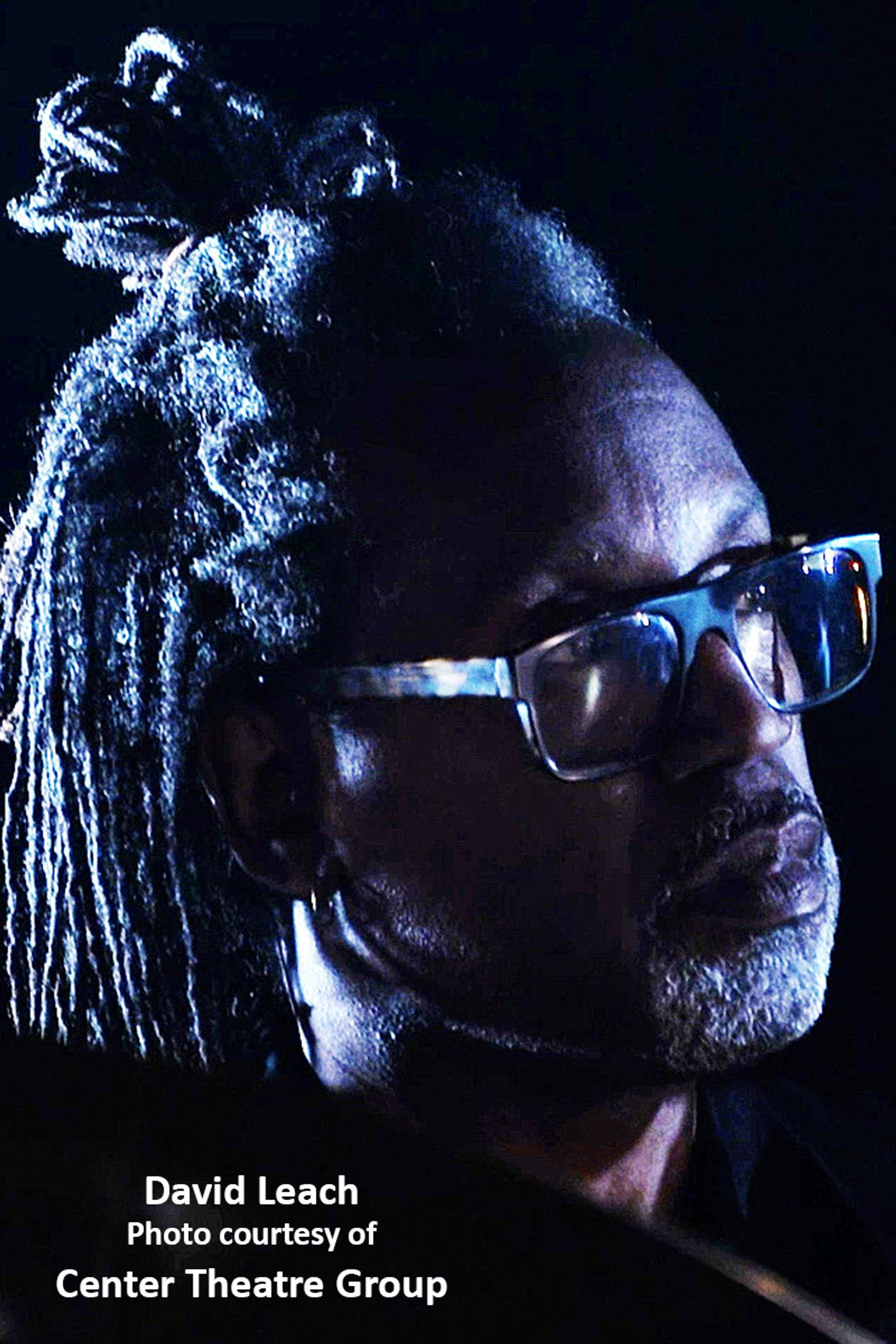 Your list of fellowships, commissions and writing awards is very impressive. Does one honor still stand out today amongst the others?
Your list of fellowships, commissions and writing awards is very impressive. Does one honor still stand out today amongst the others?
Thank you so much for this nod, Gil. My accomplishments are a living and breathing representation of the connections I've made and alliances I've built (and continue to build) on this odyssey called Show Business. They are all part of my story, all equally important, and all stand outs to me.
What challenges did you tackle in transforming your play THE WHITE DRESS into the film The White Dress?
I'm still building the screenplay for The White Dress. Part of the fun of that project is creating a vocabulary for the psycho-sexual interiority that we depict through characters' fourth-wall address on stage into a visual storytelling vocabulary compelling for the screen.
The very first line of your bio after entering your website is, "I am a Black, Filipinx, plus-sized, gender non-conforming, queer artist of color." What was your motivation to be so descriptive of yourself?
Knowing who I am has informed my social and artistic mission as a writer. I write to carve social space for those who are not always represented in the American Theatre. I want to go to a show and see a large and in-charge POC GNC person fall in love, experience professional success, feel seen and affirmed civically and personally. My plays are dreams for the inclusive, equitable world that is to come. They are a prayer and a model of social transformation - if we can dream those futures through art, we can build structures that create and maintain freedom and opportunity for all in the real world.
Did you experience a lot of name-calling and bullying growing up?
Oh, I've been called every name in the book. And it fuels my work. Today's naysaying is tomorrow's battle hymn. As an artist, I use my work to transform myopic hate into glistening love. Through my plays I hold haters accountable, let their victims know they are not alone in their suffering, and activate visibility as a possibility model for the next generation so they don't struggle as we did without examples to follow.
How old were you when you came out to your parents?
My coming out was a long process over several years. I think I came out several times, as many times as I grew to understand myself and all of my dimensions of identity. And my family have been along for the journey.
Their initial response?
I was actually shocked by my family's initial response, particularly my father's response. As queer folks assigned male at birth, I feel a lot of young boys wonder, "What is my father going to think when he finds out I'm gay?"
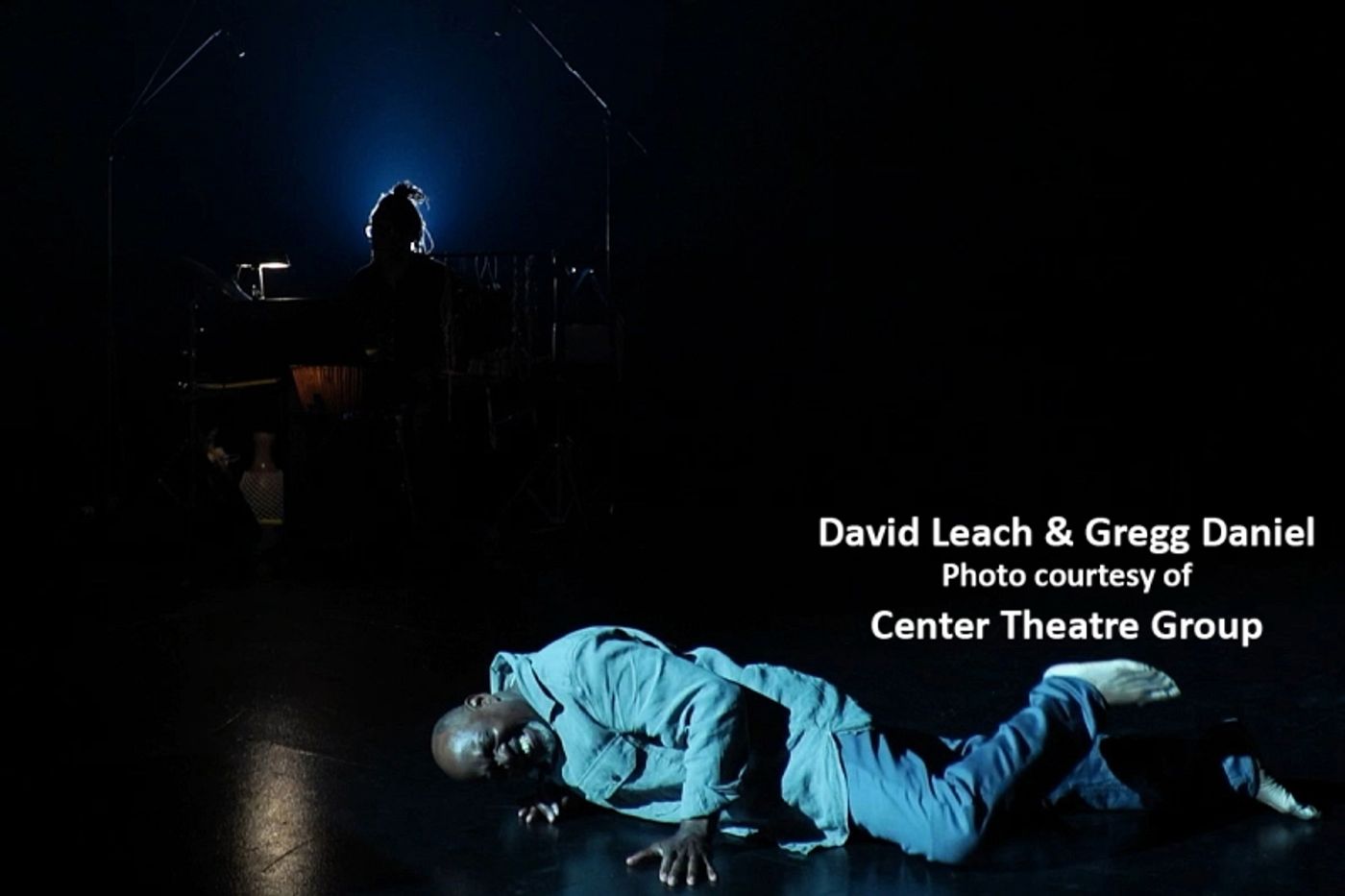 During my coming out (the first one), my dad was downstairs making oatmeal and he overheard a heated conversation between my brother and me about a love interest I'd seen the night before. The explicitness of the dialogue was enough to alert my dad that I'd been with a man and, context clues floating electric through the air, I was - therefore - gay.
During my coming out (the first one), my dad was downstairs making oatmeal and he overheard a heated conversation between my brother and me about a love interest I'd seen the night before. The explicitness of the dialogue was enough to alert my dad that I'd been with a man and, context clues floating electric through the air, I was - therefore - gay.
Oh, I thought my whole world would be over when he heard this news wafting down the stairwell straight into his ears. I never slinked slower down a set of stairs in my life.
And when I got there into the kitchen, he paused, stirred some raisins into the oatmeal, and said, "Well, I'd suspected it for a long time, and now I know it to be true." And that was it. Nobody died. The world didn't end. Night came after daytime once more, and we all moved on.
When your family and friends see your work, do they recognize themselves in your characters?
Everybody's life and everybody's story are fair game. Other people are a writer's greatest teachers and fonts of material. You really can't make some of this stuff up. It's a slice of life itself. People definitely recognize themselves, or ideas they've shared with me, in my work. And it's amazing how cyclical and porous the creative brain is. You never know where something you've witnessed is going to end up in your writing. The imagination is a fluid and ever-fertile wonderland, and I relish navigating its waters every time I go into process for a project.
You're performed in the staged reading of your LAVENDER MEN. Any plans to take the stage again?
I can't wait to be on stage again. I'm in a film right now: Taffeta, directed by Lovell Holder. It's inspired by my play LAVENDER MEN. And, by the publication of this interview, it will have premiered at Outfest in Los Angeles and Bentonville Film Festival in Arkansas.
As far as stage appearances go, I'm potentially writing myself into a two-hander about a queer one night stand that spills into the morning after.
What's in the near future for Roger Q. Mason?
After THE DUAT, my film Taffeta is making the film festival rounds. Additionally, I'm in Page 73's Interstate 73 Writers Group, and I'm excited to continue developing work digitally with my cohort through the fall and then in-person starting January in New York.
Yes, Roger Q. Mason is returning to the Big Apple - so get ready, darlings!
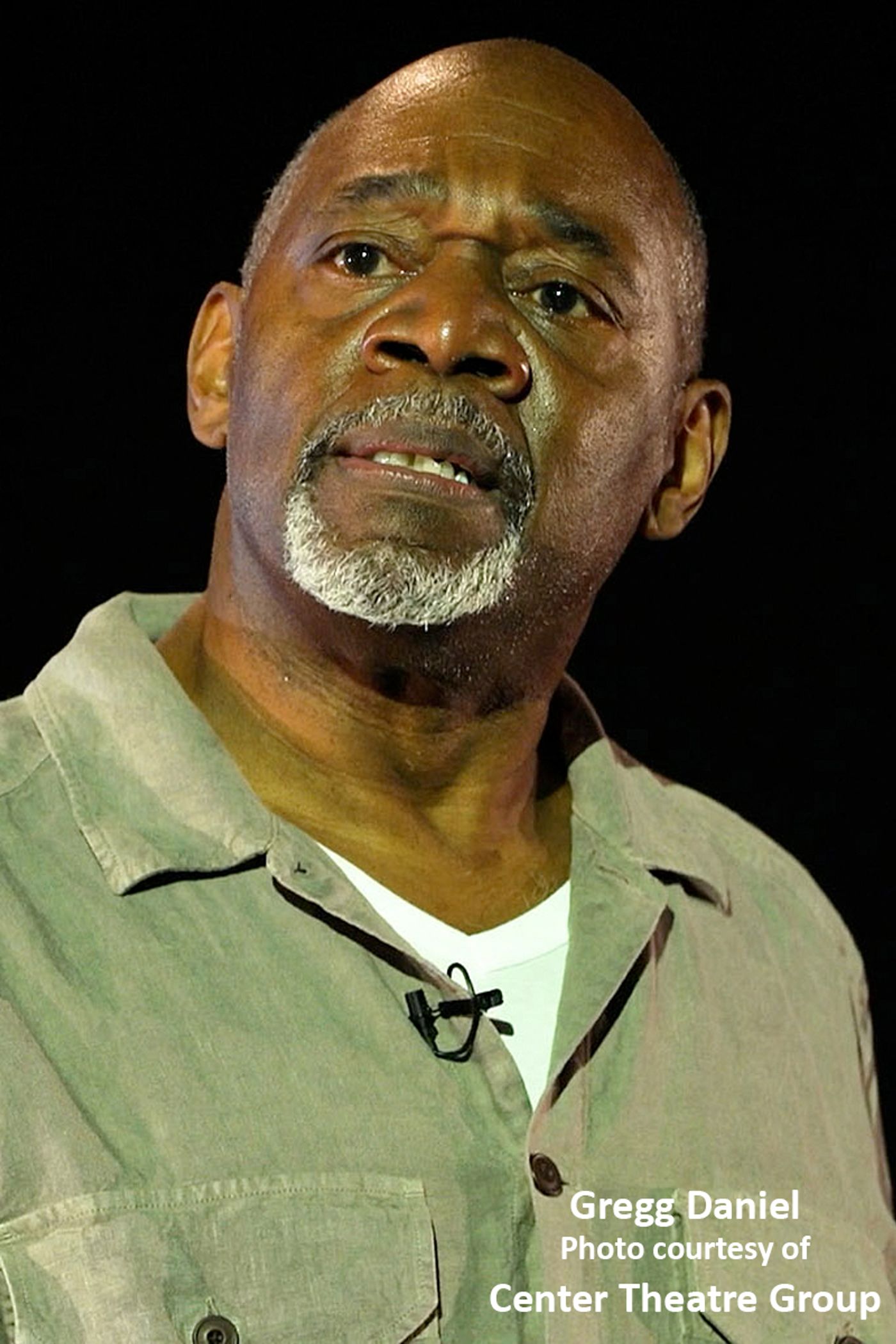 In Los Angeles, I have a production of a new devised play with Coeurage Theatre next year. Based upon the lived experiences of our diverse and largely queer and female-identifying cast, the work concerns our bodies - their exploitation, self-advocation, and ultimately their beauty. It's been a genuinely uplifting opportunity to shed light on these folx and their stories. Additionally, I am in talks to partner with a few organizations to present CALIFORNIA STORY, my biographical musing on the life of Pio Pico - California's last Black Mexican governor.
In Los Angeles, I have a production of a new devised play with Coeurage Theatre next year. Based upon the lived experiences of our diverse and largely queer and female-identifying cast, the work concerns our bodies - their exploitation, self-advocation, and ultimately their beauty. It's been a genuinely uplifting opportunity to shed light on these folx and their stories. Additionally, I am in talks to partner with a few organizations to present CALIFORNIA STORY, my biographical musing on the life of Pio Pico - California's last Black Mexican governor.
In New York, I am developing a post-kitchen sink drama called WAITING FOR A WAKE. I call it my contemporary, Black and Filpinx treatment of A GLASS MENAGERIE. In addition, I'll be working on a few other plays and musicals while I'm back East, and you know the readers at BroadwayWorld will be the first ones to know.
Finally, I have a few pilots and TV/film projects under my belt, but I can't talk about them right now - which is a very good thing.
Wow! You're really busy! Thank you again, Roger! I look forward to checking out THE DUAT.
To view THE DUAT on-demand through August 12, 2021; log onto
Videos

